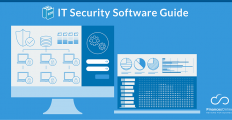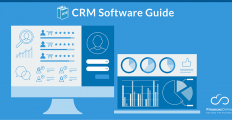In today’s digital age, the legal industry is facing numerous challenges when it comes to electronic discovery, commonly known as eDiscovery. This process involves identifying, collecting, and analyzing electronic data as evidence in legal cases. The sheer volume of information and the complexity of modern technology have made traditional eDiscovery processes inefficient and time-consuming. However, the rise of Software-as-a-Service (SaaS) solutions in legal tech is revolutionizing the way eDiscovery is approached, offering enhanced efficiency, accessibility, and security.

Understanding eDiscovery in the Legal Sphere
eDiscovery plays a crucial role in modern law, as electronic data has become an integral part of legal proceedings. It involves identifying and preserving relevant data for litigation, conducting forensic analyses, and presenting electronic evidence in court. The importance of eDiscovery cannot be overstated, as it not only facilitates a fair legal process but also aids in the discovery of critical evidence that can make or break a case.
The Importance of eDiscovery in Modern Law
The advent of digital communication and data storage has transformed the legal landscape. Emails, text messages, social media posts, and other forms of electronic evidence have become vital sources of information in legal disputes. By leveraging eDiscovery tools and techniques, legal professionals can efficiently search, retrieve, and analyze this electronic evidence, helping them build stronger cases and make informed decisions.
For example, imagine a complex corporate fraud case where the accused individual is suspected of embezzling funds through electronic transactions. In such a scenario, eDiscovery becomes indispensable in uncovering the digital footprints left behind by the perpetrator. Through the use of specialized software, legal experts can trace financial transactions, analyze communication records, and identify patterns of suspicious behavior. This comprehensive analysis of electronic evidence can provide crucial insights and help establish a strong case against the accused.
Furthermore, eDiscovery also plays a vital role in ensuring the integrity and authenticity of electronic evidence. With the increasing prevalence of digital forgery and manipulation, it is essential to have robust processes in place to verify the authenticity of electronic documents. eDiscovery software tools employ advanced techniques such as metadata analysis, checksum verification, and digital signatures to validate the integrity of electronic evidence, ensuring that it holds up in court and can be relied upon with confidence.

Key Challenges in Traditional eDiscovery Processes
Traditional eDiscovery processes often involve manual and time-consuming procedures. Paper-based documents, physical storage, and manual searches make it challenging to handle large volumes of data efficiently. Additionally, the exponential growth of data in the digital age, along with various file formats and data sources, further complicates the process. These challenges highlight the need for more streamlined and effective eDiscovery solutions.
Consider a complex litigation case involving multiple parties and terabytes of electronic data. In the absence of efficient eDiscovery tools, legal teams would have to sift through countless physical documents, spending hours upon hours manually searching for relevant information. This not only consumes valuable time and resources but also increases the risk of human error and oversight.
However, with the advancement of technology, innovative eDiscovery solutions have emerged to address these challenges. Automated data collection and processing tools can now swiftly identify and extract relevant information from vast amounts of electronic data, significantly reducing the time and effort required for manual review. Furthermore, machine learning algorithms can be employed to analyze patterns and trends within the data, helping legal professionals uncover hidden connections and insights that may have otherwise gone unnoticed.
Moreover, the use of cloud-based eDiscovery platforms has revolutionized the way legal teams handle electronic evidence. These platforms offer scalable storage solutions, allowing for the efficient management and organization of massive volumes of data. Additionally, they provide collaborative features that enable multiple stakeholders to access and review the evidence simultaneously, promoting seamless communication and collaboration among legal teams.
In conclusion, eDiscovery has become an indispensable tool in the legal sphere, revolutionizing the way electronic evidence is identified, preserved, and presented in court. By leveraging advanced technologies and innovative solutions, legal professionals can navigate the complexities of modern litigation more efficiently and effectively. As the digital landscape continues to evolve, it is crucial for legal practitioners to stay abreast of the latest eDiscovery trends and developments, ensuring they can leverage the full potential of electronic evidence in their pursuit of justice.
The Rise of SaaS Solutions in Legal Tech
Software-as-a-Service (SaaS) has gained significant traction in various industries, and the legal sector is no exception. SaaS solutions have revolutionized the way eDiscovery is approached, providing numerous advantages over traditional methods.
Defining SaaS and Its Advantages
SaaS refers to a cloud-based software delivery model where applications are hosted and accessed via the internet. The benefits of SaaS in the legal industry are manifold. It eliminates the need for extensive on-premises infrastructure, reducing costs and simplifying implementation. Moreover, SaaS solutions continuously update and improve, ensuring that legal professionals have access to the latest tools and features.
Adoption of SaaS in the Legal Industry
The legal industry has been quick to embrace SaaS solutions due to their inherent advantages. Law firms and legal departments are increasingly leveraging cloud-based eDiscovery platforms, as they offer scalable solutions that can adapt to varying caseloads and data volumes. The flexibility and accessibility of SaaS also enable remote collaboration, allowing legal professionals to work seamlessly from different locations.
How SaaS Enhances eDiscovery
SaaS solutions have revolutionized the eDiscovery landscape by addressing many of the challenges faced by traditional processes. These solutions not only streamline data management and analysis but also improve accessibility and collaboration.
Streamlining Data Management and Analysis
SaaS eDiscovery platforms leverage advanced algorithms and machine learning techniques to automate data identification, categorization, and indexing. This streamlines the process of identifying relevant documents, reducing manual efforts, and significantly saving time. Furthermore, these platforms offer powerful analytics capabilities, enabling legal professionals to gain insights from vast amounts of data quickly.
Improving Accessibility and Collaboration
SaaS solutions allow legal professionals to access eDiscovery platforms anytime, anywhere. This accessibility empowers them to review documents, track progress, and collaborate with team members from multiple locations, enhancing productivity and efficiency. Additionally, cloud-based collaboration features facilitate seamless communication and knowledge sharing among legal teams, fostering collaboration and better decision-making.

Security Concerns and Solutions in SaaS for eDiscovery
As with any technology that handles sensitive legal information, security is a paramount concern in eDiscovery. However, SaaS solutions offer robust security measures that address potential risks and ensure compliance with legal standards.
Addressing Data Privacy and Confidentiality
SaaS providers implement stringent data privacy and confidentiality measures to protect sensitive client information. Advanced encryption, role-based access controls, and secure data centers safeguard data against unauthorized access. Moreover, reputable SaaS vendors undergo third-party security audits and comply with industry-specific regulations, providing legal professionals with peace of mind.
Ensuring Compliance with Legal Standards
Legal professionals must comply with various regulations and standards when handling electronic evidence. SaaS eDiscovery platforms integrate compliance features, such as data retention policies and audit trails, to ensure adherence to these legal obligations. Additionally, these platforms offer granular access control, enabling administrators to grant permissions based on the principle of least privilege, further strengthening data security.
The Future of eDiscovery with SaaS
SaaS solutions have significantly transformed eDiscovery processes, and their impact will continue to shape the future of legal tech. Predicted trends and developments indicate exciting possibilities for further enhancement and efficiency.
Predicted Trends and Developments
Advances in artificial intelligence and natural language processing are expected to drive eDiscovery innovation. These technologies will enhance the accuracy of document classification, intelligent search, and predictive coding, resulting in faster and more accurate document review. Additionally, the integration of machine learning algorithms will facilitate continuous improvement and enable more advanced analytics capabilities.
Preparing for the Future of Legal Tech
To stay ahead in the evolving legal landscape, legal professionals must embrace SaaS solutions and continuously adapt to technological advancements. Investing in eDiscovery platforms that leverage cutting-edge technologies will enable law firms and legal departments to streamline their workflows, improve efficiency, and deliver better outcomes for their clients.
In conclusion, SaaS solutions have revolutionized eDiscovery in the legal industry. These solutions address the challenges of traditional processes, delivering enhanced efficiency, accessibility, and security. By streamlining data management and analysis, improving collaboration, and offering robust security measures, SaaS solutions empower legal professionals to navigate the modern legal world more effectively. As the legal industry continues to evolve, embracing SaaS for eDiscovery is essential for law firms and legal departments seeking to enhance their capabilities and provide the highest level of service to their clients.






















Leave a comment!